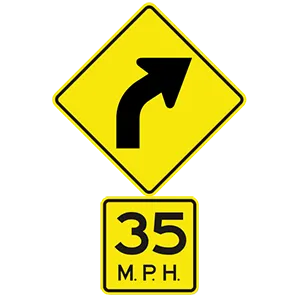Motorcycle Test | License NJ 2026 | FREE Online Practice! #3
Take this FREE motorcycle test (license in NJ 2026) to check your knowledge of the road rules. To improve your results, download a motorcycle handbook online, study theory, and practice for free on our website. Still worried about how to get a motorcycle license in New Jersey in 2026? Check our website for more sample tests, train as much as possible, and boost your grades!
1 . When riding with a passenger, you should tell them to do all of the following, except:
To help keep the operator focused on riding, passengers should avoid unnecessary conversation or movement. Passengers should get on a motorcycle only after the engine has been started. They should sit as far forward as they can without crowding the operator and hold firmly onto the operator's waist, hips, or belt.
2 . Making eye contact with another driver:
You should never take eye contact with another driver as a guarantee that they will properly yield the right-of-way to you.
3 . When preparing to pass another vehicle on the left, which portion of the lane should you ride in?
When preparing to pass another vehicle on its left, you should ride in the left portion of the lane to increase your line of sight and make yourself more visible to oncoming traffic.
4 . What are the colors of warning signs indicating upcoming hazards?
Warning signs that indicate approaching hazards are usually yellow with black lettering or symbols. Warning signs in work zones are orange with black lettering or symbols.
5 . Use your mirrors when stopped at an intersection:
When you are stopped at an intersection, use your mirrors to check for cars approaching you from behind. The drivers may not notice you until they are too close and you may need to react.
6 . Passing and being passed when riding a motorcycle is not much different than when driving a car. However:
While the basic techniques for safely passing and being passed are the same as when driving a car, visibility is more critical when riding a motorcycle. The smaller size of a motorcycle makes it easier for you to disappear into another vehicle's blind spot, or for the driver to fail to notice you even if they are able to see you.
7 . This road sign means:

These signs indicate that the road curves to the right ahead and that drivers should slow down to the safe speed indicated (in this case, 35 mph).
See the exact questions that will be on the 2026 New Jersey DMV exam.
99.2% of people who use the cheat sheet pass the FIRST TIME
Jeneen was tired of paying $5/gallon. She got herself a scooter that required the motorcycle license. She studyed the motorcycle test cheat sheet and passed her test the next day!
Christopher tells us how he knew nothing prior to obtaining the motorcycle study guide, and he only got one question wrong because he clicked on the wrong answer by mistake.



